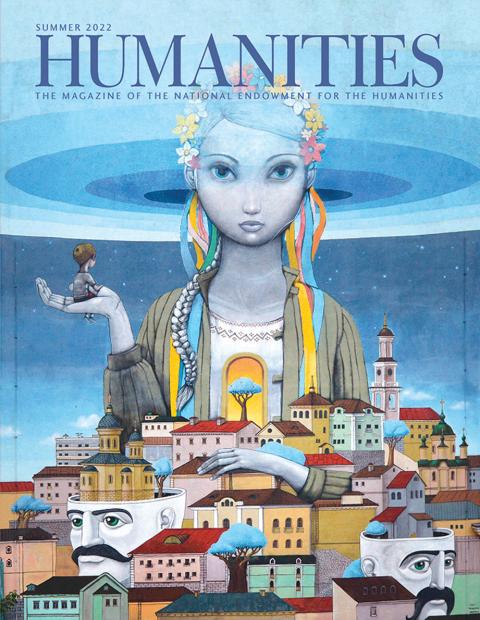With this issue, Humanities magazine celebrates the arrival of Shelly C. Lowe as the twelfth chair of the National Endowment for the Humanities. Nominated by President Joe Biden and, in February, confirmed by the United States Senate, Lowe comes to NEH from Harvard University, where she was executive director of the Native American Program.
A citizen of the Navajo Nation, Lowe served from 2015 to 2022 on the National Council on the Humanities, which advises the NEH chair on the agency’s grantmaking. In her interview, Chair Lowe talks about growing up on the Navajo reservation, working with college students, her favorite books, and much more.
The experience of war had already shaped the work of Ukrainian poets before the Russians invaded in February. Independence, political tumult, and war in the Crimea had all left an imprint on the country’s bards, including several whose work was anthologized and translated in two collections supported by NEH grants. Our very own Steve Moyer read and talked his way into this story of contemporary Ukrainian poetry so we could hear from the editors and their poets.
Amidst all the rancor in the world, we have noticed several times when the wedge prying Americans apart involved history and interpretation. In these debates, the word revisionist has become a shorthand for politically tendentious history-writing, an idea that historian James M. Banner Jr. takes up, showing how the history of revisionism in the West began immediately after the beginning of history-writing itself.
We know too little of the Partition of India in 1947. As the British Empire was broken up and new national boundaries hastily drawn, all hell broke loose. To quote the Encyclopedia Britannica: “In the course of that tragic exodus of innocents, as many as a million people were slaughtered in communal massacres that made all previous conflicts of the sort known to recent history pale by comparison.” Guneeta Singh Bhalla, the director of the 1947 Partition Archive, which is supported by California Humanities, had the inspiration to begin collecting the stories of survivors in an extraordinary oral history project that is helping to make this historical calamity better known.
NEH Public Scholar Bette Talvacchia recently completed a book project called The Two Michelangelos, comparing the lives and works of Michelangelo of Sistine Chapel fame and Michelangelo Caravaggio. Associate editor Angelica Aboulhosn takes up the theme of these nonparallel lives to explore how Caravaggio lived and worked in the shadow of Michelangelo’s legacy while forging a very different path.

